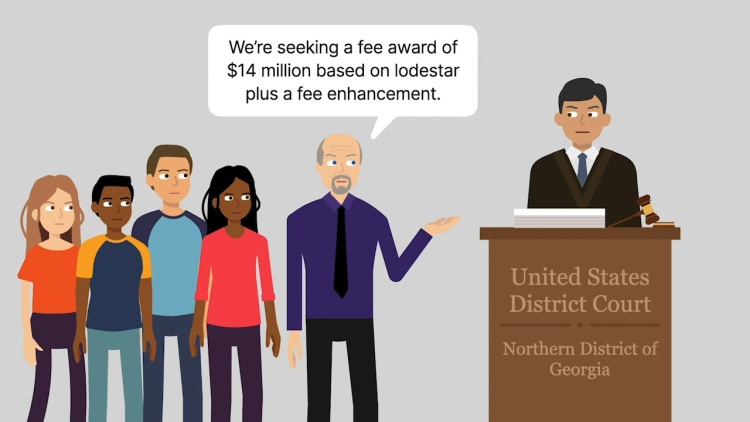Perdue v. Kenny A.
United States Supreme Court
559 U.S. 542 (2010)

- Written by Denise McGimsey, JD
Facts
Children in Georgia’s foster-care system and their next friends (plaintiffs) brought a class action against the governor and other Georgia officials (defendants), contending that defects in the foster-care system violated their federal and state civil rights. After litigating for eight years, the parties reached a consent decree that obligated the defendants to undertake comprehensive reforms. The plaintiffs then sought court approval of more than $14 million in fees, to which they were entitled under 42 U.S.C. § 1988. Half of the fees derived from a lodestar calculation based on 30,000 hours worked multiplied by hourly rates of $200 to $495 for attorneys and $75 to $150 for non-attorneys. The remaining fees sought represented an enhancement to the lodestar award based on superior performance and results. The district court awarded plaintiffs’ counsel $6 million pursuant to the court’s own lodestar calculation and a $4.5 million enhancement based on: (1) counsel’s outlay of $1.7 million in expenses without ongoing reimbursement, (2) counsel’s delays in receiving payment while work was performed, (3) the fact that counsel took the case on a contingency basis, and (4) counsel’s exceptional skill and results, both of which were the best the court had seen in decades. The United States Court of Appeals for the Eleventh Circuit affirmed. The defendants petitioned the Supreme Court for certiorari.
Rule of Law
Issue
Holding and Reasoning (Alito, J.)
Concurrence (Thomas, J.)
Concurrence (Kennedy, J.)
Concurrence/Dissent (Breyer, J.)
What to do next…
Here's why 907,000 law students have relied on our case briefs:
- Written by law professors and practitioners, not other law students. 47,100 briefs, keyed to 996 casebooks. Top-notch customer support.
- The right amount of information, includes the facts, issues, rule of law, holding and reasoning, and any concurrences and dissents.
- Access in your classes, works on your mobile and tablet. Massive library of related video lessons and high quality multiple-choice questions.
- Easy to use, uniform format for every case brief. Written in plain English, not in legalese. Our briefs summarize and simplify; they don’t just repeat the court’s language.





